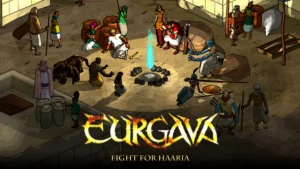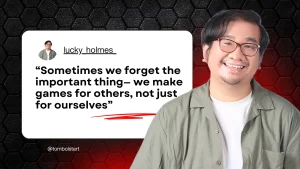lucky_holmes_ is back again with another important insight for developers! Having a skilled team alone isn’t enough to make your game a succees! So why is the role of a game director the key to keeping your project on track? Let’s find out.
Advice from Lucky!
In one of his reels, Lucky raised a topic that many people often overlook. Which is the role of a game director.
View this post on Instagram
Many people assume that if you already have a great programmer, an amazing artist, and a creative designer, the game is guaranteed to be successful. But according to Lucky, that’s not the case! In reality, many game projects fail to move forward even when the team is full of talented people.
Lucky explained that without someone acting as some kind of a captain, the team can easily lose direction. Projects can stall, get delayed endlessly, or never even see release.
Also read! Face to Face with Publisher: Why It Matters for Game Devs?
At the end of the day, all the hard work has to be guided toward one clear goal. There’s no point in having cool features or beautiful graphics if the game never actually releases! And the one making sure that goal doesn’t slip away is the game director.
Why Is It So Crucial?
A game director is like the captain of a ship. Programmers, artists, and designers are important, yes. But without leadership, the ship just drifts around with no destination.
It’s the game director who ensures that every idea, every little detail, and every big decision stays aligned with the game’s main vision. Without that control, the game can lose its identity.
In the worst case scenario, a project that started out full of energy may end up stalling midway. Or worse, becoming a half-baked product that nobody enjoys.
Lucky also reminded us that this role isn’t just for big studios. For small or indie teams, it’s even more vital!
And it doesn’t have to be a formal job title. What matters is that at least one person has the courage to take responsibility as the guiding voice. Otherwise, small mistakes can snowball into bigger problems that can stop the game from ever being finished.
Look at the Industry
If we look at the game industry, the examples are everywhere. AAA titles usually have a clear figure, People like Hideo Kojima or Neil Druckmann, who act as both the face and the guiding director. But as Lucky pointed out, this doesn’t mean small teams don’t need one.
Also read! Do You Need to Know How to Code to Make a Game? Not Necessarily!
Take Stardew Valley for example, Eric Barone made the entire game by himself. And he’s the one taking the role of game director. Because he had a consistent vision, the game became one of the most successful indie titles of all time.
Lucky uses this example to show that being a game director isn’t just about having a flashy title. It’s the foundation that keeps the project moving in the right direction. Without it, teams end up going in circles, and more often than not, the game never gets released.
Don’t Underestimate It!
Once again, and it needs to be emphasized, never underestimate the role of a game director! All the skills and talents in the world won’t mean much if they aren’t guided properly. Otherwise, things just fall apart.
They can stay focused on the shared goal and aren’t so easily thrown off by random ideas that risk derailing the project. Even if your team is small, make sure there’s someone ready to be that captain.
Because in the end, the best games aren’t born just from brilliant ideas along the way, but from a consistent vision. And being a game director isn’t about having a fancy title. But it’s the foundation that ensures your game actually makes it into players’ hands.
References:




